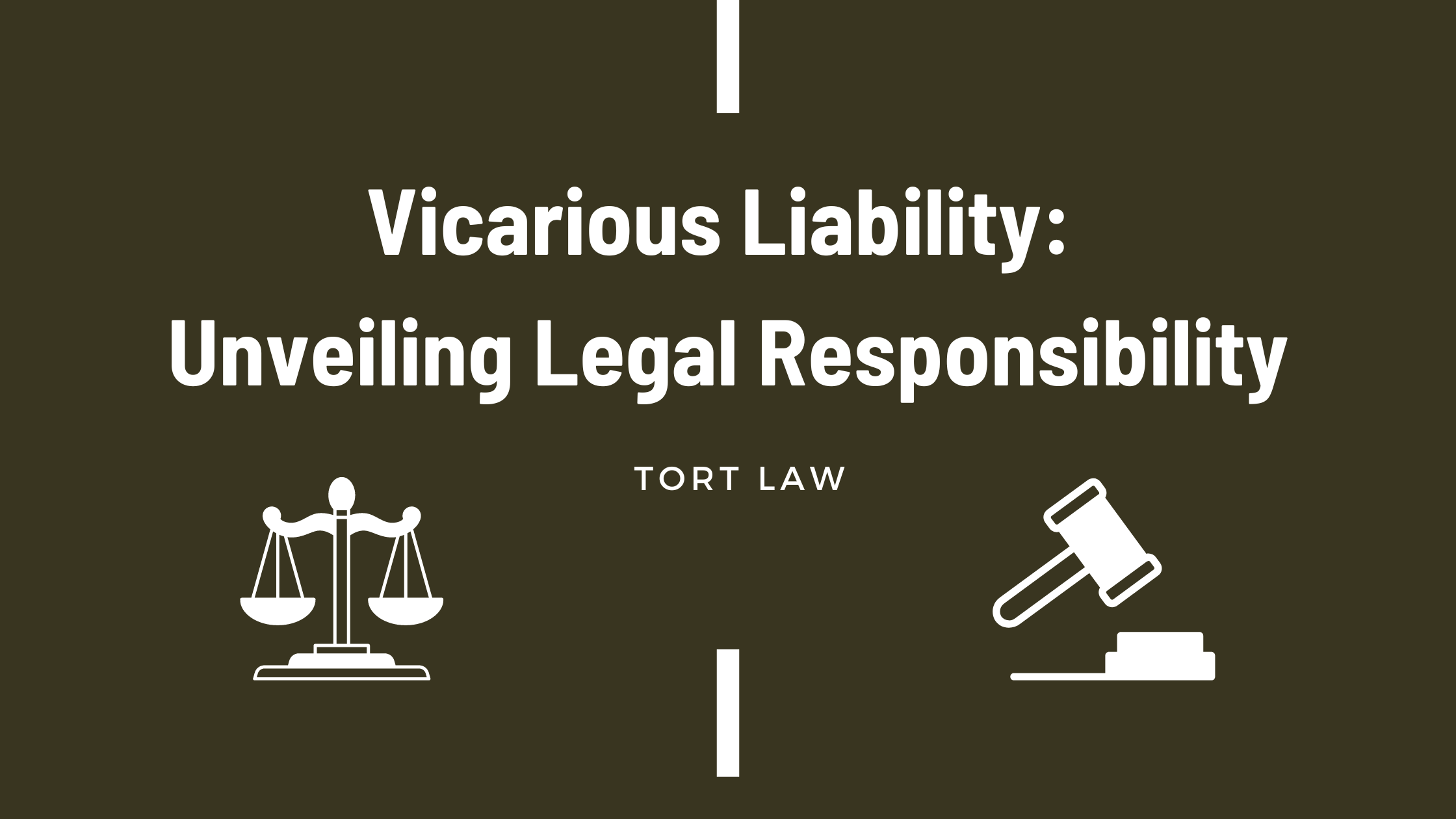In the obscure world of law, vicarious liability stands as a remarkable concept, weaving through time and holding a mirror to the evolving dynamics of responsibility. Let’s board on a journey to unravel the essence of this legal principle, adorned with simplicity yet rich in its implications.
Ancient Threads:
The roots of vicarious liability delve deep into history, where the master took accountability for the deeds of their servants. This ancient notion, significant of a protective umbrella, finds resonance in the notion that “he who acts through another acts on his own behalf.”
Evolutionary Unfoldings:
As societies progressed, so did the understanding of vicarious liability. It transformed from a simple idea to a sophisticated legal doctrine where one entity could bear the consequences of another’s actions. This evolution echoes the timeless maxim that “law is a rule of right.”
Historical Tapestry:
In the rich tapestry of Indian legal history, landmark cases like the Oleum Gas Leak Case (M.C. Mehta vs. Union of India, 1987) stand as vivid examples. Here, the emergence of “absolute liability” marked a turning point, holding industries accountable for harm, irrespective of fault. The maxim “the thing speaks for itself” adds an eloquent layer to this historical narrative.
Words of Legal Wisdom:
Legal luminaries have cast their wisdom upon the canvas of vicarious liability. Lord Denning’s words, “let the master answer,” encapsulate the essence of this legal concept. Such insights from legal giants enrich our understanding, adding profound strokes to the portrait of legal responsibility.
Modern Quandaries: Recent Judicial Perspectives
In today’s legal landscape, vicarious liability transcends traditional employer-employee dynamics. Recent judgments have further sculpted the contours of this doctrine, reflecting the judiciary’s nuanced approach. The case of Indian Bank vs. United India Insurance Company Limited (2022) exemplifies the contemporary challenges faced by financial institutions, where vicarious liability was extended to cover the fraudulent acts of bank employees during office hours.
Similarly, the verdict in RideShare Corporation vs. Commissioner of Transportation (2023) marked a milestone in addressing the gig economy’s complexities. The court, applying the doctrine of vicarious liability, held the ride-sharing platform accountable for the negligent actions of its independent drivers while on duty.
These recent judgments illustrate the adaptability of vicarious liability to modern scenarios, ensuring that the legal framework remains relevant and responsive to the changing dynamics of the workforce.
Ancient Wisdom Meets Contemporary Challenges:
While ancient principles endure, the gig economy introduces novel challenges. The question of whether app-based companies are vicariously liable for independent contractors presents a contemporary legal tightrope. In this dynamic landscape, vicarious liability must adapt to meet the demands of the evolving workforce.
A Compassionate Perspective:
Let’s not lose sight of the human impact amidst legal intricacies. Victims of tortious acts deserve empathy, and our exploration should be underscored by a compassionate tone. Behind every legal term lies a real-life story, reminding us of the lives affected and the importance of seeking justice with humanity.
The Crucial Role of Tort Law:
At the heart of vicarious liability lies the indispensable role of tort law in delivering justice. It serves as a guardian, ensuring that accountability is not merely a legal abstraction but a conduit for fairness, redress, and societal equilibrium. The maxim “where there is a right, there is a remedy” underscores the essence of justice that tort law seeks to uphold.
Vicarious liability, with its simple yet profound implications, weaves a compelling narrative in the fabric of legal responsibility. From ancient echoes to modern complexities, it remains a cornerstone in the realm of tort law, reminding us that accountability is not just a legal obligation but a moral imperative.
********************************
